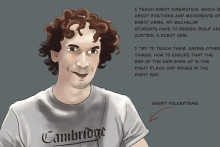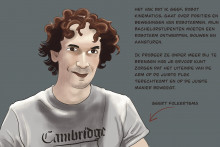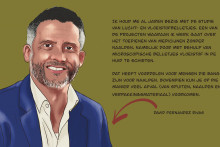These are the proposals currently on the table from Minister of Education, Culture and Science Ingrid Van Engelshoven, who is expanding on legislation on the language of instruction in higher education. The proposals have not yet been put before the Dutch House of Representatives. They are currently online for consultation, and anybody is free to comment on them.
The Inspectorate of Education and the Accreditation Organisation of the Netherlands and Flanders (NVAO) will be responsible for supervising English-language tuition. Once every six years, every educational programme needs to be reviewed and assessed by the NVAO. And that is also the time when they will need to justify which language they have chosen to teach in.
Change of language
So what happens if their explanation is not good enough? In that case, they will need to switch back to tuition in Dutch. The NVAO may also decide to give the programme a second chance. If a programme can demonstrate the need and usefulness of its chosen language of instruction within a maximum of two years, then they can continue as before.
The cabinet has included this option in order to protect foreign students. After all, if their tuition unexpectedly switches to Dutch, they may not be able to cope.
But as far as the minister is concerned, such a ‘second chance’ option will only be available to programmes whose explanation is assessed as ‘just below satisfactory’ or in cases where it is considered ‘realistic and feasible’ that the programme could still demonstrate the added value of tuition in a foreign language.
New English-taught programmes only possible with approval
The situation will be different for brand new programmes. These should not be taught in English until and unless they can justify this. And they will not be able to start teaching in English before they have done so, only in Dutch.
The NVAO could also withdraw its permission prematurely if inspectors conclude that a programme no longer meets the requirements for a ‘foreign-language’ programme. If that happens, the programme will either need to switch to tuition in Dutch or close its doors entirely.
The number of English-taught programmes has been increasing rapidly, particularly at universities. Only 14 percent of all university Master's programmes are taught in Dutch. Ten percent are taught partly in English and partly in Dutch, while over three-quarters are taught entirely in English.
Critics believe that programmes provide tuition in foreign languages mainly in order to attract international students, even though this can undermine the quality of the education provided. But supporters maintain that they simply want to prepare students properly for an international world.
The government's online consultation phase will continue until 24 December.









